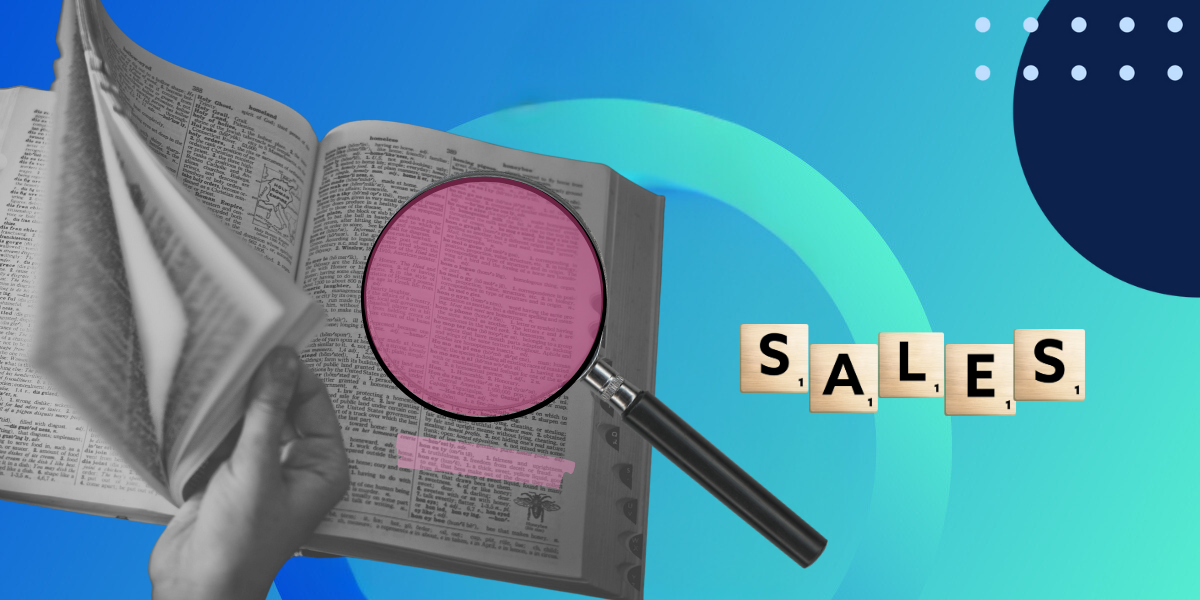3 Common Sales Challenges and How to Solve Them in 2023

Sales teams face a variety of challenges with the rising complexity of sales cycles, increased competition, and customers’ heightened expectations around speed and quality of service. The pressure may be on, but there are a lot of opportunities for organizations that can find the right balance between efficiency and creating customer value.
Organizations that can meet customers where they are and offer multiple channels to purchase from will stand out in the crowd. When we work with clients to streamline sales operations, we see a few shared challenges that make it difficult to meet customers’ needs. In this article, we’ll talk about some of the ways that organizations can transform their processes and how to identify whether your organization would benefit from adopting
Here are some of the top challenges we see and how we approach solving them with our clients.
Lack of Quality Data
Every organization wants to be more data driven. But that’s only possible when you can both access and easily leverage the data your organization has.
For example, we run into a few common issues when working with clients to implement our software:
- Data is outdated, incomplete or inaccurate.
- Entering data into CRM and other systems takes a lot of time.
- Data isn’t actionable
- Data exists across multiple systems.
These challenges might look a little different for each organization, but the general theme is the same: It’s really difficult to get actionable data to the people and systems who need it. And that can be a real headache for everyone, not just your sales team.

The Solution:
Leveraging your data more effectively is as much a process challenge as it is a technical one. Take some time to think about the way data is created and the way it moves through your organization. How does order information get saved and shared? What does the product configuration process look like now?
This will not only help you make process improvements, but it’ll also inform your technical needs. For example, Experlogix often works with clients as they’re implementing a new CRM or ERP solution, usually to replace multiple disparate systems that require a lot of manual work to maintain. Even before considering out-of-the-box reporting capabilities, leveraging an all-in-one solution that feeds data back to your CRM improves forecasting for demand, inventory and revenue. This reduces wasted time and material, while also making it easier to work with suppliers and other partner organizations.
Difficulty Hiring and Retaining Sales Talent
Hiring new salespeople is one of Gartner’s top sales challenges for 2023, and it’s not just the difficulty of finding new talent — it’s also taking longer to make a hire once you find the right person. According to a survey done by RAIN group, it takes an average of three months before a new salesperson is ready to interact with customers. Becoming a top performer takes much longer…15 months!
You may not be able to control the talent market, but you can take some steps to shorten the gap between newer salespeople and your top performers. Think about the things that a new salesperson must learn and how that knowledge is transferred. How do new salespeople learn about your products, as well as pricing and other strategies?

The Solution:
It’s important to remember that streamlining your sales process will also make it easier to train new sales team members. For example, integrating key systems like CRM, ERP and CPQ means there are fewer unique platforms that sales teams need to know to do their jobs effectively. An
The guided selling feature in Experlogix CPQ takes this even further. Guided selling enables the system to automatically recommend upsell or cross-sell opportunities, increasing the efficiency (and revenue generation) of new sales team members.
This is especially helpful for organizations with complex product ecosystems or that offer a range of complementary product ecosystems. For example, clients that offer both products and services could configure the system to suggest potential service add-ons while a product is being configured. This helps to drastically shorten the gap between new and more experienced salespeople, increasing overall revenue and minimizing the cost of turnover.
Longer, More Complex Sales Cycles
B2B sales cycles are becoming longer and more complex, while B2B customer expectations continue to increase. In fact, the need for speed has led to greater investment in Digital Commerce solutions among B2B sales organizations. Per Gartner, 72% of B2B buyers recently completed a significant transaction via a digital commerce channel, compared to 28% who completed a purchase through a rep-led channel. Digital Commerce platforms are especially suited for organizations that want to expand into new sales channels or maximize the effectiveness of an omnichannel strategy. Solutions like Experlogix Digital Commerce, for example, make it easy to launch retail websites for resellers and dealers, ensuring that your business partners have access to up-to-date product information — and that they can offer the same quality customer experience as your in-house sales team.

The Solution
There has never been a greater need to balance efficiency with providing value for your customers. Even in light of more complex sales cycles, Digital Commerce solutions simplify the process by enabling a touchless, self-service experience. The good news is that this also means there is an incredible opportunity for organizations that do achieve that balance of efficiency and value.
Your sales process is key. And there are a few key factors to consider as you evaluate how to improve it:
- Where in the process do most prospects get stuck?
- What’s the most frustrating part of the process for your sales team?
- What takes the longest in your current sales cycle?
- How much rework are you doing (e.g., correcting orders, shipping incorrect products)?
- How easy is it for customers to find the information they need?
- How are you collaborating with your business partners?
Designing a frictionless sales process is easier said than done, of course. But there are ways you can drive efficiency and customer value at the same time. By enabling customers to place online orders on their own, many of our clients are able to manage more products or more product variations. Plus, their sales teams can focus on nurturing prospects that really do need guidance.
Does Your Sales Process Need a Facelift?
For organizations with configurable products or services, the right CPQ software and Digital Commerce solution are two essential ingredients to transformation. While CPQ helps to streamline internal processes and take the heavy lifting out of the sales process, Digital Commerce platforms enable you to scale your online selling and meet your customers through the channels they most prefer. At the end of the day, it’s about making it easier for your customers to purchase from you.
For example, there are a few common areas where manual work gets in the way of selling effectively:
- Manually moving data between systems to create orders or more them to production.
- Navigating between different systems to get pricing and product information.
- Manually calculating prices during the configuration process.
- Customers being unable to place orders without help from sales.
If your current process requires sales to spend time managing data and making manual calculations, they don’t have as much time to find new leads and engage prospects. CPQ and Digital Commerce software not only let you focus on more critical work, they make it simpler to share information across systems, departments and partners.
The bottom line? Today’s customers want simplicity, speed and quality. They don’t want to have to wait to make purchases, and they won’t tolerate a cumbersome shopping experience. But with the right tools, you can beat these expectations, while making everything you do more efficient.
Interested in seeing how it works? Request a demo of Experlogix solutions here.



